When most people are asked about where they get their protein from, the majority of us would instantly think about the eggs or steak we may have eaten during our last meal.
In reality, protein is found in a number of other foods and beverages, including dairy, legumes, nuts, seeds and soy. But just how much protein is in dairy, and how good is it for us?
How much protein is in dairy?
Protein can be found in a wide range of foods, but the amount can differ quite considerably between food sources. For example, you can expect to get around 7g of protein from one egg and 10g from a cup of green peas, while a 100g serve of lean chicken will provide you with around 30g.
Many dairy products, such as cheese, milk and yoghurt can also provide a source of protein. For example, a 250ml glass of milk or 2 slices of cheese (40g) will provide you with around 8-10g protein and a 180g pottle of Protein+ Plain style yoghurt will give you around 12g. While it may not seem like a lot, if you’re aiming for between 75-125g protein per day, then including these 3 servings of dairy into a healthy balanced diet will provide you with between 25-40% of your total protein needs for the day.
Why dairy protein is good for you.
Aside from being a convenient way to get part of your daily protein requirements, here are three good reasons why we should be choosing dairy as a protein source every day:
1. Dairy protein is a complete protein
Protein is made up of amino acids. There are 20 amino acids which act as building blocks in the body. Proteins help to replace and create new body tissues including bone, muscle and skin. While our bodies have the ability to create most of these amino acids, 9 of them are what we call indispensable (or essential), meaning that our bodies cannot make them and we must get them from the diet. Certain food sources contain all 9 essential amino acids in amounts the body needs. These are commonly referred to as “complete proteins” as they provide a one stop shop for all amino acids we need to source from the diet. These food sources include dairy, as well as meat, fish soy and eggs.
Protein found in other plant-based foods can be a good source of some, but not all essential amino acids. If you are vegetarian, it’s a good idea to choose high quality proteins such as dairy or soy, and enjoy a range of protein rich plant-based foods, such as wholegrains, legumes, nuts and seeds, throughout the day to ensure you’re getting all the protein you need.
2. Dairy contains specific amino acids that are good at helping to build and maintain muscle mass.
All amino acids have important roles to play in the body, but among them are a particular group of essential aminos acid known as branched chain amino acids (BCAAs). BCAAs, particularly leucine, appear to be unique in their ability to stimulate muscle growth. Leucine plays a big role in determining muscle mass, as it can both stimulate the production of muscle and prevent muscle breakdown. The protein found in dairy is a particularly good source of leucine. So combining exercise with a balanced diet containing high quality protein, like those found in dairy products, can be particularly helpful to build and maintain lean muscle mass. Building and maintaining lean muscle doesn’t just look good, it can also help to increase your resting metabolic rate and support an active lifestyle, making daily activities easier.
"Consuming a few high protein dairy foods throughout the course of the day is a great way to help you meet your protein needs for optimal health."
3. Dairy protein is highly bioavailable
While overall protein and amino acid content are both good to consider, looking at the bioavailability of protein (how well it can be digested and absorbed in the body) is equally important when considering protein quality. Protein quality is measured by looking at the essential amino acid content of a protein combined with the digestibility of these amino acids, and comparing this to a ‘reference protein’. When compared to the reference protein, dairy protein ranks higher, whereas soy tends to be ‘on par’ and other plant based proteins rank lower.
So while dairy may not be the first food source you think of when it comes to protein, in reality, dairy protein is full of essential amino acids, just waiting to be used by your body! Consuming a few high protein dairy foods throughout the course of the day is a great way to help you meet your protein needs for optimal health.
Here are few ideas to incorporate more dairy protein into your day:
- Add Anchor Protein+ Milk to your breakfast cereal or into your morning coffee
- Include Anchor Protein+ Natural Yoghurt with your fruit for morning tea
- Reach for a few slices of Mainland Edam or Tasty cheese for a mid-afternoon snack
- If you are a meat eater, try the occasional meat free meal and swap the chicken or steak for some pan fried haloumi


